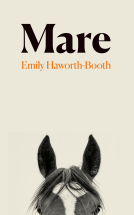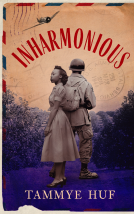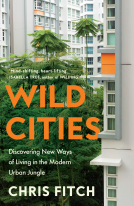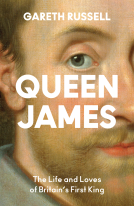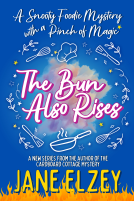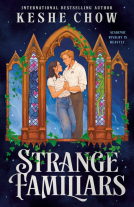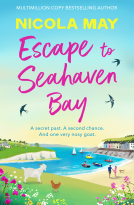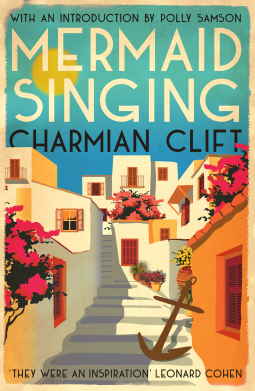
Mermaid Singing
by Charmian Clift
This title was previously available on NetGalley and is now archived.
Send NetGalley books directly to your Kindle or Kindle app
1
To read on a Kindle or Kindle app, please add kindle@netgalley.com as an approved email address to receive files in your Amazon account. Click here for step-by-step instructions.
2
Also find your Kindle email address within your Amazon account, and enter it here.
Pub Date 1 Apr 2021 | Archive Date 30 Apr 2021
Talking about this book? Use #MermaidSingingMuswellPress #NetGalley. More hashtag tips!
Description
A Note From the Publisher
Charmian Clift (1923-69) was a much-loved Australian writer and essayist she wrote two novels, many essays and collaborated with her husband on three books.
Advance Praise
‘A really beautiful writer who just puts you right there’ Polly Samson
‘These are blissful reissues that will bring Grecian heat and light to your life, and much more besides’ Editor’s Travel Choice. The Bookseller
‘The Australians drank more than other people, they wrote more, they got sick more, they got well more, they cursed more, they blessed more, and they helped a great deal more. They were an inspiration.’ Leonard Cohen on Charmian Clift & George Johnston
Available Editions
| EDITION | Other Format |
| ISBN | 9781838110130 |
| PRICE | £8.99 (GBP) |
Average rating from 25 members
Featured Reviews
I don't think I read the blurb very well going into this book as I thought I would be reading about their life as part of the bohemian community of artists instead of there time on Kalymnos. I since reread the blurb and realised it was the second book that went into their life in Hydra. I also thought the book was set in todays time not in the 1950's where times were a lot more simpler and children ran free so perhaps not so unusual for her children to embrace island life. I really need to read the synopsis before I start a book.
That said, I enjoyed this book and imaging what life was like on the island. It sounded harsh but also idyllic. I would have loved to have seen some photos from their time there included in the book. I did end up googling the island so I could get a better sense of what it looked like and where it was. Makes me want to visit now!
"'You are a pair of romantic babies,' said a friend of ours. 'And of course you'll live to regret this folly. On the other hand I believe that although the mermaids are mute it is necessary for everybody, once in his life, to go down to the sea and wait and listen.'" Beautiful phrasing, and not an unreasonable response if, in the 1950s, a couple with two young children should tell you that they're leaving London for life on a Greek island, and not even one of the big or famous ones. Kalymnos' dramatic scenery belies its size ("ten miles long and, at its broadest point, less than five miles wide"); its economy rests on a sponge-diving trade which always crippled those who dove, but is now itself faltering thanks to the increasing availability of artificial alternatives. Meaning "It is an island under sentence, an island in suspense" – a sunnier version of all those remote Scottish fastnesses where in the end everyone emigrated. Except, of course, that wasn't how it happened, because not long after this was written, mass Mediterranean tourism became a thing (although if that was unforeseen in 1956, so was the trade's sudden end in 2020, so who knows where they're at now?).
But to go back to that eloquently sceptical response which gives the book its title – obviously the immediate response was that the kids interrupt, taking the statement at face value because small children tend not to be familiar with much modernist poetry. And it cannot be emphasised enough that this is travel writing as done by the mother of two young kids, simply because that's still not the default mode, and was even less so in the mid-20th century. From Stephen Graham through Patrick Leigh Fermor to Clive James, my mental picture of a wanderer thenabouts is an unencumbered young(ish) man. Granted, there is the one obvious counterexample of Dervla Murphy, but even if I was too young to remember it myself, I've always associated her with an awkward anecdote of my infancy, which has shied me away from much investigation. Still, it puts a whole different complexion on proceedings: the traveller themselves may be fine with roughing it in a leaky hovel, or unfamiliar foods, but young children...well. And although being outsiders to some extent exempts the Clifts from Kalymnos' rigid gender roles, it's still unsurprising if Charmian has a more pointed perspective on the matter than her husband might have done were he writing this, or if the pair had collaborated as they did on their novels. Indeed, she offers a fascinating report on a warning from another expat, who found that at some point, and she couldn't even quite put her finger on when, she and her husband had gone from mocking the island's expectations together, to gradually emulating them. Of course, now we have the extra lens of distance, because the Clifts give the impression of having been moderately bohemian by the standards of the day yet pretty old-fashioned by ours – but Charmian still offers an acute account of Kalymnos' set-up, which one might now characterise as 'patriarchy harms everyone' turned up to 11, with absurd strictures placed on both genders such that everyone feels limited and as if the others are getting a better deal.
Also interesting is that these rigid gender roles aren't perceived just as a case of going back in time, but as sometimes distinctly different to what she's known in England and Australia. This was, after all, a time before cheap flights and TV had made such in-roads in homogenising even the Western world, and much of the island life, even when it is presented as a matter of religion, seems to Clift to represent more of a pre-Christian survival. Which is perhaps inevitable when names like Xanthippe and Calliope are just that, names, names which a neighbour might bear without it being thought remotely remarkable, even though they seem that way to Anglophone ears. In places, the weight with which superstition is regarded, or the firm taboos, reminded me of that folk horror mainstay, the pagan village conspiracy – with the key distinction that the locals here are much easier on the unwitting outsiders than those born into them. Also, they seem less invested in the classical past than the incomers – Clift's surprised when the children come home from school to learn that the heroes of whom they're taught there are not those of myth, but of the war of liberation from the Ottomans, simply because it's so easy for an Anglo to forget that Greek history is an ongoing thing, not a distinct and distant era.
At its best, Mermaid Singing catches the wild mood swings of making a new life far away, the way that an infuriating day can shade into a delightful one and then into some baffling alloy of the two. There are some wonderfully whimsical passages: "An unpaid gas bill still pursued us politely from the Edgware Road. Because it was our only surviving link with our previous life we were loath to pay it." In a few setpiece scenes, we get intoxicating cascades of impressions and images which rhapsodically capture the white and blue of the streets, the phantasmagoria of Carnival and christening. At its worst, one is sorely tempted to shout 'Oh do give over!' as Clift lapses towards 'the poor are happier because they're more spiritual' territory - as when, towards the end, she suggests that "what gives the faces a nobility almost unnatural in our age is the complete absence of resentment and pettishness, or those tell-tale lines that mark the frustration of little egos". This mere pages after a study of the pathetic figure of a failed captain, who demonstrates all those attributes in abundance. See also "I knew by experience that labour is not eliminated by gadgets, you can't get entertainment at the flick of a switch" – which is all very easy to say when on Kalymnos you can outsource much domestic drudgery for a pittance. Still, these annoyances were rarer than the poetic passages, or the clear-eyed ones. The overall effect is of a caught moment; a record of a world that was ending, which, even if that's probably for the best, was still a loss for all that.
(Netgalley ARC)
 Christina D, Educator
Christina D, Educator
This is a gem of a book! The writing is just beautiful it feels like poetry. A really wonderful account of the author, her author husband & young children to a remote Dodecanese island (Kalymnos) in the 50’s. So unusual and full of cultural anecdotes. This book is full of light and hope. This is the first memoir and there is a follow up to their future move to Hydra. Originally I believe they were part of one book.
 Melissa J, Librarian
Melissa J, Librarian
I really enjoyed this memoir about an Australian journalist who moved with her husband and two children to a Greek island in the 1950s. Clift has a real talent for making the reader feel like they are standing right there with her, witnessing the sometimes crazy culture shock of the island. I immediately identified with her descriptions of wanting to leave behind the cold chaos of city life (in their case London), and wanting to embark on an adventure that would help their writing. I think the idea of escaping to a Greek island to write is one that many people daydream about.
Clift does a great job of letting readers into the highs and lows of their move, and one scene that really stuck with me was when their servant Sevasti spoke about the misogyny of island life and what is considered 'women's work'. I found this a fascinating insight into island life that is sometimes not explored in other writings.
I think this book is perfect for fans of 'My Family and Other Animals', and I'm looking forward to reading the follow up book, 'Peel me a lotus', that continues the story of Clift and her family.
Charmain Clift's memoir of moving with her writer-husband George Johnson and their children to Greece in 1954.
Her vivid writing immerses us along with her and her family into peasant life on an impoverished Greek island. Her two companion memoirs (Mermaid Singing and Peel Me a Lotus) are insightful, charming, and funny. Despite occurring only decades ago, life there mirrors peasant life centuries ago. A delightful read for anyone enjoying memoirs about the awkwardness of not fitting in and family life in other places.
 ANGIE W, Reviewer
ANGIE W, Reviewer
An enjoyable read, a travel book about a family who move from Australia to a Greek island. The writing is enchanting and you feel you get to know the family and all the other villagers.
Having devoured A Theatre for Dreamers by Polly Samson which was loosely based on the lives of writers Charmian Clift, her husband George Johnston and their children's move to a tiny Greek Island called Kalymnos and then latterly to Hydra. I found the memoir interesting with some funny moments and it has a real Greek flavour. Would recommend.
Thank you to Netgalley and the publisher for an advance copy in return for an honest review.
I was not familiar with this novel, the authors or anything about them. I was intrigued though as there was a quote from Leonard Cohen on the synopsis, and from the quote I thought it would be wine, fun and laughs.
The writing is lovely, and a very simple life, quirky life on a remote Greek Island in the 1960 is wonderfully painted. This is particularly relevant as this is not a memoir of a family backpacking out to Greece and having the time of their life. This is a story where life was simpler, but the toilet did not flush, and an unpaid gas bill followed them out to Greece. The journey over to the Island was tough and their house was not what they were expecting.
But they get help and they make friends, and the writing depicts this beautifully.
Sometimes I think when I read books on a kindle, I miss things though. I have never been to Greece and have never heard of Kalymnos so would loved to have seen some photographs, and I felt that this would have preferred having the actual novel that I could dip in an out of, rather than a kindle.
It’s a lovely travel read though, an escapism to the simple Greek life from the pressures of the third Irish lockdown.
 Anna J, Reviewer
Anna J, Reviewer
Mermaid Singing – Charmian Clift
I absolutely adored this book. It gave me such a genuine feel of being part of a move to a remote (at the time) Greek Island. The family make such a huge effort to be part of island life and really fit in with the locals and the way Charmian writes as though events are happening around you as you read makes you feel such a part of their world. It is wonderful. The descriptions of Easter and some of the other religious celebrations are both colourful but honest and give true insight into the importance of these activities for the community. The focus on how the move and the environment impacts of the whole family is also magical. How the children adapt and accept their new lives is inspiring.
I also enjoyed the historical interest and knowledge learned about the sponge diving. Once again imparted in such a relevant and accessible way, it doesn’t feel like an history or a geography lesson but I came away knowing much more than I started with. I cannot wait to get onto the second book in this series.
 Mallika R, Reviewer
Mallika R, Reviewer
My thanks to Muswell Press and NetGalley for a review copy of this one.
In the 1950s, Australian writer Charmian Clift and her husband George Johnston (with whom she also jointly wrote books) decided to leave grey, dreary London (where George was working on Fleet Street) to move to a Greek Island with their children and live by their pen—not being of the other persuasion of journalists who apparently take to pig-farming. Mermaid Singing is the first of two volumes of her memoirs, this one of the year the family spent living on the impoverished island of Kalymnos. (The other, of their life in Hydra is Peel Me a Lotus, which I’ll have a separate review of). At the beginning of each chapter are pen and ink illustrations by Cedric Flower—these I think are new.
Beginning with their rather uncomfortable boat ride (after hours of air travel) to the island, experience finding a house and settling in, we are taken through various facets of the family’s life there—the different people they met and interacted with, things Clift observed--from nature to human nature, the children’s experiences and the adults’, to other aspects of island life--taverns, customs, meals and celebrations. Kalymnos was an island of sponge divers—the men went by ship to the African coast each year to dive for sponge while their wives and children remained on the island. Life was hard and the fact that synthetic sponge was being preferred to natural meant the divers’ livelihoods were under threat. (Interestingly around the time I was reading the book, I happened to chance upon a short TV programme on Greece which also discussed the livelihood problems the sponge divers are facing in the current context, half a century or so since this volume). The society was very traditional and strongly patriarchal, but there were women that spoke their mind and questioned the limitations they had to live under (like their domestic help Sevasti). Clift and her family were the only foreigners but there were also Greeks who had been brought up in England or elsewhere but now lived in Kalymnos. Life there was completely different from anything they had known or experienced, yet rich and much more satisfactory and fulfilling. And it is this, from small everyday experiences (like leaks in their house when their first moved in) to little adventures (like getting the children the pet they were promised, or ‘the small animus’ as a Greek friend called it) and trips they took (on which they are never left alone), to larger issues like that of gender that we see in this book.
When I started this book, what immediately captured my attention was Clift’s wit and humour. For instance, ‘There is some mysterious affinity between a journalist and a Berkshire sow, that to me is completely unfathomable, but then I married into the island persuasion of journalists’. Perhaps there are more downright funny observations at the start than later but her writing is great fun all through. Clift was a keen observer and gives us vivid descriptions with great detail about each facet that she is writing about, be it a person or occurrence or scene. Reading the book, one could well be sitting with her and her family watching events unfold or gazing at the landscape.
Considering how full their life seemed with just the events described, she does point out that amidst all that she and George did write the book they were there for, and she would have been writing this one as well. So certainly as she writes, on the island away from modern entertainments and distractions, they had the time to work, spend with their kids, and enjoy the life that it offered to the fullest. Yet reminders of their old life (an unpaid gas bill that follows them) are kept on as their link with that other life.
Reading about island life and culture, especially the patriarchal set up, I was somewhat surprised by how much was similar to other parts of the world—early marriages and dowries (or at least their equivalent), strict (and unfair) gender roles, and of course the misogyny. Charmian stands out and perhaps shocks residents by dressing in pants, swimming with (and faster than) men, and drinking in taverns which were the realm of men alone.
Charmian and her family’s life isn’t necessarily the idyllic island life with picturesque scenes (though there are those) and lolling about in the sun—the characters are rich, there is a great deal of colour but there are also tragic and melancholy stories and gory details (Clift doesn’t shy of describing the butcher’s shop or the fate of the poor spring lambs)—besides work, of course.
This was a really enjoyable read for me, one I could be lost in. So glad to have come across this on NetGalley since I hadn’t heard of either Clift or the books before.
 Jane A, Educator
Jane A, Educator
Charmain Clift's reissued book Mermaid Singing from 1952 shows why she is one of the most revered Australian writers. Her writing is often elegiacal and always evocative. Her prose is powerful, descriptive, and rich with detail. Her understanding of and fondness for the Greek islanders who become part of her family's world is extraordinarily perceptive and vivid. Her descriptions of the physical island of Kalymnos and villagers' lives there are especially useful for those readers who have always wanted to travel to Greece: food, drink, flora, fauna, cultural ceremonies, religion, dress, dwellings, and all other aspects of daily life are compellingly described and propel the reader from page to page. While reading this book I found myself thinking of Nikos Kazantzakis, Gerald Durrell, Dido Sotiriou, George Seferis and other writers whose connection to Greece is indelible. Clift's affection for Greece and its people is strong and enduring, and her strong, incisive, and gifted writer's voice gives clarity to her remembrances, What a pity that she didn't have more years to put her words on the page.
 Bethannia N, Educator
Bethannia N, Educator
Wanderlust! After spending over a year in lockdown, this was a beautiful way to while away a few hours on a remote Greek island in the 1960's. Realistic, un-romanticised descriptions of village life painted an authentic picture of what their time in Greece was like for this young family.
I had thought that I liked travel memoirs. And I do - I can enjoy a good 'and then we went here and experienced that' story. But I've eventually realised that what I really enjoy is what I choose to call 'domesticity in the exotic'. Exotic is a loaded word, but I use it here to evoke a sense of difference that I don't think 'foreign' really captures; and I'm just as including a Brazilian or Nigerian writing about moving to Melbourne as I am a Londoner moving to Provence (I think Romulus, My Father arguably fits neatly into my category).
Before A Year in Provence or Under a Tuscan Sun came Mermaid Singing, by Australian Charmian Clift.
Its most obvious parallel is My Family and Other Animals, and the rest of the Corfu Trilogy. Indeed, they were originally published in the same year, 1956. But 'parallel' is right: they seem to start similarly and go in the same direction - family moves impetuously to Greek island, experiences with Greek locals don't always go as expected, genteel poverty etc - but they are fundamentally separated stories. Where My Family is written two decades after the events, Mermaid is contemporaneous. Where Durrell was the spoilt youngest son of the family and was off having adventures and occasionally going to school, Clift is a writer and a mother and a wife; while she has adventures, they're not the focus, because she has the cares and concerns of an adult: both for her own family and the way she views the people around them.
My Family is a fond recollection of a childhood dream, /something something the world before World War 2 blah blah. Mermaid Singing is part 'domesticity in the exotic', but also a rumination on the hardship of Kalymnos life, and the difficulties of being a woman in the 1950s trying to forge and continue a career alongside motherhood.
Clift writes beautifully, and evocatively. Kalymnos is an island that largely relies on about 10% of its population going out on sponge-diving expeditions for 7 months of the year - a dangerous occupation and one that's bringing back less revenue as, in the 50s, artificial sponges are taking over the market. It's also an island still, in Clift's experience, in the grip of patriarchal attitudes (and Clift herself is part of this as she notes she has no right to comment on whether someone has beaten his wife at the end of a drunken week). The whole reason for moving here is for Clift and her husband to collaborate on their third novel, this one to be about the sponge-divers. And they do manage to do this, in between drinking a lot of retzina and being closely observed by all their neighbours and seemingly endless rounds of engagements and baptisms.
This is no day-by-day account of life. Like A Year in Provence it follows a year, observing the changes to life as the seasons come and go. Clift observes moments: a friend giving birth, experiences in the taverna, the experiences of her two children during Carnival.... As a gifted writer, she uses these moments to reflect on life itself - and death; and she conjures a wondrous view of Kalymnos. Is this likely to reflect the lives of the people who lived there their whole lives? Perhaps not. Perhaps they would recognise some aspect of their lives but be confused by an emphasis or examination. It does seem like a genuine reflection of Clift's experience - an an ex-pat Australian, a writer, a woman who didn't quite fit the expected mould of womanhood on the island.
 Reviewer 804934
Reviewer 804934
This is a reissue of a lovely book written by Charmian Clift about her family’s move to the island of Kalymnos in the 1950s. It’s such a realistic and lovely description of Greece in that time after the Second World War and after the devastating Greek civil war. It captures the harsh, stark yet beautiful life on this remote island. The language is lyrical and the author’s observations and vignettes about the locals are warm and fond–finding both the humor and the pathos in this tight-knit community that takes her family in. Detailed narratives on the landscapes, island hierarchy, the dangerous and devastating life of the sponge divers and their families–Clift weaves these into the story of her family and does not spare the reader the realities of the abject poverty, entrenched patriarchy, capricious callousness of the sponge divers line of work. But Clift also reveals the generosity, the pride, the rituals and traditions of the inhabitants of this small island and how her family made it their home. From counting her own blessings and acknowledging a new found gratitude for their own family’s circumstances, to how the children immersed themselves into and adapted to the island society, to the ways the sexist attitudes were steeped in rigid patriarchal traditions but somehow did not extend in censure or negativity to the author herself–the book gives a multifaceted and richly documented look at a moment in time of modern Greek history. It’s written in such an engaging, personal, empathetic manner. I am looking forward to the second book by this author. You can feel the heat of the Greek sun, visualise the landscapes and whitewashed island vistas, conjure up snapshots of this world from the vividness of the writing. Highly recommended.
My thanks to Netgalley and the publisher for this ARC.
 Reviewer 266180
Reviewer 266180
Delightfully Written...
Beautifully descriptive memoir of life on the tiny, sunny and traditional island of Kalymnos in the 1950’s. Delightfully written with larger than life characters and an often moving read. The follow up of life in Hydra is documented in ‘Peel Me A Lotus’.

